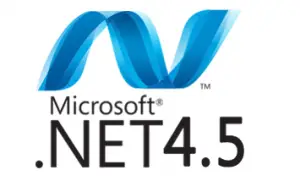Asked By
Laz Zebbena
0 points
N/A
Posted on - 08/12/2017

Hello everyone, I have heard about the simplicity of Microsoft.NET framework 4.5. Kindly explain its definition and various services provided by this version.
Use Of Microsoft.NET Framework 4.5 And Its Features.


Microsoft .NET frame work 4.5 is simple and easy to use a version of Microsoft.Net.
The .NET Framework from Microsoft is comprehensive. It is consistent programming model which is for building apps. It gives the visually best user experiences, seamless and secure connection.
Dot NET 4.5 Provides services given below:
- Highly compatible.
- Issue resolved related to an ambiguous timestamp.
- Better Performance.
- Reliability
- Security
- Adds substantial improvements to other functional areas.
- Significant language and framework enhancement.
Use Of Microsoft.NET Framework 4.5 And Its Features.

.NET Framework is a software framework developed by Microsoft that works mainly on the Microsoft Windows operating system. It has a huge class library called FCL or Framework Class Library as well as give language interoperability across several programming languages which allows every programming language to use codes written in other programming languages.
Applications that were created for .NET Framework run in a software environment called CLR or Common Language Runtime. The CLR is a program virtual machine that offers services like memory management, security as well as exception handling. Common Language Runtime (CLR) and Framework Class Library (FCL) together make up .NET Framework.
.NET Framework 4.5 is an in-place, high compatible update to Microsoft .NET Framework 4. If you wish to install it, download Microsoft .NET Framework 4.5. It supports Windows Vista Service Pack 2, Windows 7 Service Pack 1, Windows Server 2008 Service Pack 2, and Windows Server 2008 R2 Service Pack 1.














